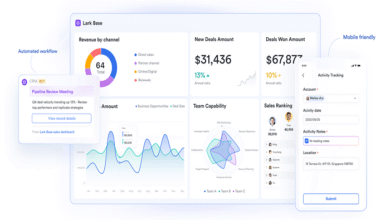Facecheck ID Name: A Comprehensive Guide to Understanding and Using Facecheck

In today’s fast-paced digital world, verifying and confirming one’s identity has become an essential part of ensuring security, trust, and accountability online. With the rise of various platforms requiring user authentication, services have introduced sophisticated methods to authenticate users. One such innovation is Facecheck ID name, a tool designed to help businesses and individuals confirm the identity of users via facial recognition technology.In this blog post, we’ll dive deep into understanding the Facecheck ID name and explore its significance, how it works, applications, and much more. If you’re wondering about this technology and its practical uses, keep reading as we break down all the key components you need to know.
What is Facecheck ID Name?
Facecheck ID name is an advanced digital identity verification solution that leverages facial recognition technology to match a person’s face with their ID name or documents. By using artificial intelligence and machine learning algorithms, Facecheck ID name ensures accurate and fast identity verification, minimizing the risks of fraud and identity theft.In essence, it ties the user’s face to a specific name and verifies that the person appearing in a live video or photo is the same as the individual on the official documents. This technology is primarily used by financial institutions, e-commerce platforms, government services, and other sectors requiring secure identification processes.By integrating Facecheck ID name into their systems, businesses can ensure that only legitimate users are accessing services, reducing the chances of unauthorized access and protecting sensitive data.
How Does Facecheck ID Name Work?
Facecheck ID name works by analyzing the biometric features of a person’s face and comparing them with the ID name information stored in a database. The system uses algorithms to extract distinct facial characteristics, such as the distance between eyes, the shape of the nose, and the contour of the face.
Once a person submits their image or video, the system scans these features and matches them with a previously stored image or the individual’s ID name. If the match is successful, the system verifies the identity, confirming that the person in front of the camera is indeed who they claim to be.
Key components involved in the Facecheck ID name process include:
- Facial Feature Extraction: Capturing unique facial features.
- Matching Algorithm: Comparing the features against stored images or databases.
- Verification: Providing confirmation of identity.
This process is quick and efficient, often taking only a few seconds to verify someone’s identity. It makes authentication smoother for users while adding an extra layer of security for businesses and organizations.
Applications of Facecheck ID Name in Different Sectors
1. Financial Institutions
In the financial industry, the importance of secure identity verification cannot be overstated. Facecheck ID name helps financial institutions ensure that the person accessing accounts, transferring money, or performing transactions is indeed the account holder. By implementing this technology, banks and payment platforms can prevent fraudulent activities and identity theft, improving customer trust.
2. E-commerce Platforms
E-commerce platforms are increasingly adopting Facecheck ID name technology to authenticate users before confirming high-value purchases. It adds an extra level of security to online shopping and can be particularly useful for verifying credit card payments, ensuring that the buyer is authorized to make a transaction.
3. Government Services
Government agencies have begun using Facecheck ID name for everything from online tax filings to passport applications. The technology helps streamline processes and reduce the risk of impersonation, fraud, or errors, making services more accessible while ensuring that citizens’ data remains secure.
4. Healthcare
In the healthcare industry, Facecheck ID name can verify patients before accessing their medical records, making prescriptions, or undergoing procedures. This ensures that the right individual receives the correct care, preventing mistakes and improving patient safety.
5. Travel and Security
Airports and security agencies are increasingly using Facecheck ID name technology to enhance security. Travelers can quickly go through security checks or board flights with minimal hassle, while airports ensure that only verified individuals access restricted areas.
Benefits of Using Facecheck ID Name
The adoption of Facecheck ID name technology offers several benefits to both businesses and users. These benefits include:
1. Improved Security
One of the primary benefits of Facecheck ID name is the increased security it provides. With biometric identification, the system reduces the chances of fraudulent activities like identity theft and account takeover. Since facial features are unique to each person, it’s almost impossible for someone to impersonate another.
2. Convenience
Unlike traditional methods like password-based authentication, which can be cumbersome and prone to human error, Facecheck ID name offers a much more convenient experience. Users can authenticate themselves simply by showing their face, eliminating the need to remember complex passwords.
3. Speed and Accuracy
The system is extremely fast and accurate. Facial recognition algorithms are designed to identify faces in real-time, ensuring that users can complete their verification process in seconds. This speed is vital for sectors where time-sensitive authentication is necessary.
4. Compliance with Regulations
Many industries are required to comply with stringent regulations regarding data privacy and user verification. By integrating Facecheck ID name, companies can meet these compliance standards while enhancing the overall customer experience.
Privacy Concerns and How Facecheck ID Name Addresses Them
Despite its many benefits, the use of Facecheck ID name has raised privacy concerns among individuals. The most significant issue is the collection and storage of biometric data, which some people fear could be misused.
However, Facecheck ID name systems address these concerns in various ways:
1. Data Encryption
To protect users’ privacy, Facecheck ID name systems often use high-end encryption protocols to store facial data. This ensures that even if the data is intercepted, it remains unreadable and unusable without proper decryption keys.
2. Consent-Based Usage
In most implementations, users must give explicit consent before their face data is used for verification. This gives individuals more control over their personal information and ensures that the technology is only employed with their knowledge and agreement.
3. Strict Data Retention Policies
Many organizations using Facecheck ID name have strict policies regarding how long biometric data is stored. Most systems only retain data for a short period necessary for verification and dispose of it once the transaction or process is complete.
4. Transparency
To maintain transparency, many companies disclose how facial data is collected, processed, and stored. This allows individuals to make informed decisions about whether they wish to use the service.
Facecheck ID Name vs. Traditional ID Verification Methods
When comparing Facecheck ID name to traditional identity verification methods, several key differences stand out.
Passwords vs. Biometrics
Traditional identity verification often relies on passwords, PINs, or security questions. While these methods are effective, they can be compromised through hacking or social engineering. Facecheck ID name, on the other hand, uses biometric data, which is inherently more secure since facial features are unique to each individual.
Time Consumption
Traditional verification methods often require users to input multiple details, such as passwords and personal information, which can take time. With Facecheck ID name, the process is instantaneous, allowing for faster user authentication and a smoother experience overall.
Human Error
With traditional methods, there is a higher risk of human error, such as forgetting passwords or providing incorrect information. Facecheck ID name eliminates these concerns since it directly matches facial features, reducing the chances of mistakes.
Conclusion
The Facecheck ID name technology represents a significant leap forward in identity verification. By combining facial recognition with name-based identification, businesses and users can enjoy faster, more secure, and efficient verification processes. From financial institutions to government services, the technology is making online interactions safer while also offering greater convenience.While there are privacy concerns surrounding the use of biometric data, companies are taking steps to ensure that user privacy is respected and protected. By offering encryption, consent-based usage, and data retention policies, Facecheck ID name ensures that users can authenticate their identities without compromising their security or privacy.As this technology continues to evolve, we can expect it to become a standard for identity verification across various industries, further streamlining online interactions and enhancing overall digital security.
FAQs
- What is Facecheck ID name? Facecheck ID name is an identity verification system that uses facial recognition to confirm the identity of a person by matching their face with a stored ID name.
- How secure is Facecheck ID name? Facecheck ID name is highly secure as it uses biometric data, which is unique to each person. It’s much harder to spoof compared to traditional passwords or PINs.
- Can Facecheck ID name be used for online purchases? Yes, many e-commerce platforms now use Facecheck ID name technology to authenticate users during online purchases, adding an extra layer of security.
- What are the privacy concerns with Facecheck ID name? The primary concern is the collection and storage of biometric data. However, Facecheck ID name systems address these concerns through encryption, consent-based usage, and strict data retention policies.
- How fast is the Facecheck ID name verification process? The process is extremely fast, often taking just a few seconds to confirm identity through facial recognition.





